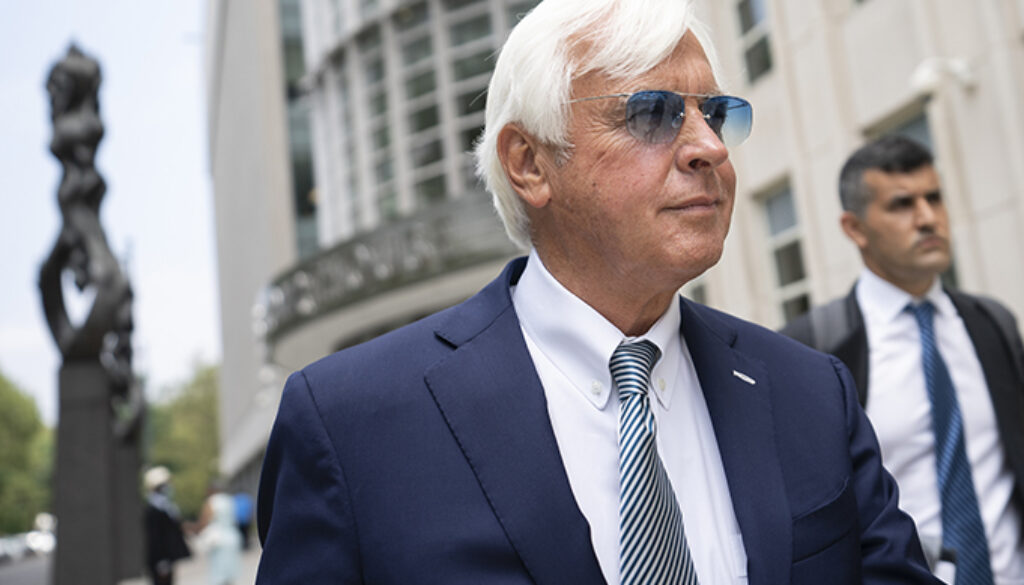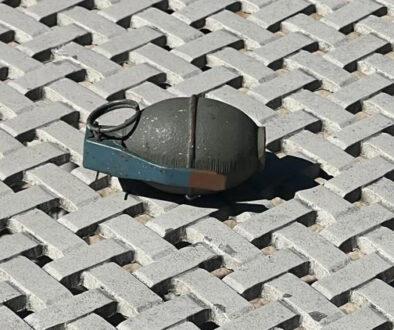Judge questions treatment of suspended horse trainer Baffert
NEW YORK — A New York judge was sympathetic Monday to horse trainer Bob Baffert’s claims that his May suspension by the New York Racing Association — after Kentucky Derby winner Medina Spirit failed a postrace drug test — was unconstitutional.
U.S. District Judge Carol Bagley Amon at a Brooklyn hearing repeatedly pressed a lawyer for the racing association to explain why the suspension was issued before Baffert was given a chance to defend himself.
Henry Greenberg, arguing on behalf of the racing association, said Baffert will get a hearing after the association announces the length of his suspension by Aug. 11.
“Isn’t that a little too late?” the judge asked, noting that the duration will be announced months after he was suspended. “The problem I have, counsel, is that he was suspended and it’s up in the air.”
She said the racing association attacked his credibility as it issued the suspension, but never gave him the chance to speak on his own behalf about what happened.
“How does that comply with due process?” the judge asked.
At another point, Amon said: “You just sent him a letter saying, ‘You’re out,’ with no due process whatsoever.”
Greenberg repeatedly said the NYRA, which operates Belmont Park, Aqueduct and Saratoga Race Course, took the action to protect the integrity of the sport.
He said the association had to act fast because the Belmont Stakes, the third prong of horse racing’s Triple Crown, was fast approaching in early June.
The lawyer noted that the Kentucky Derby test was the fifth time in the past year that a horse trained by Baffert tested positive for drugs.
“Rarely in the history of the sport has there been such a confluence of drug positives involving so prominent a trainer,” association lawyers wrote in court papers.
In Baffert’s lawsuit last month seeking to get the suspension lifted, the Hall of Famer contended he was suspended without “any prior notice” and was not told the duration or terms of the suspension or any New York state law or regulation he might have violated.
After hearing arguments from both sides, Amon did not immediately rule.
Arguing on Baffert’s behalf, attorney W. Craig Robertson III said it was unfair of the racing association to suspend his client without the completion of an investigation into the circumstances surrounding what he called the “alleged test” on Medina Spirit.
Robertson said it was possible that traces of betamethasone were found in the horse’s system as a result of an ointment applied to the horse to treat a skin rash three weeks before the race. The unregulated ointment, he said, contained betamethasone.
Churchill Downs suspended Baffert for two years after an additional drug test of Medina Spirit confirmed betamethasone in the horse’s system. Baffert cannot enter any horses in the Kentucky Derby or other races at the storied Louisville track through the spring of 2023.
Robertson contended that the New York suspension would be the “death knell” to Baffert’s training business because New York’s Saratoga Race Course, which reopens Thursday, is a pivotal stop for a young horse destined for greatness.
He said a top horse farm in Kentucky had already taken two prize horses from Baffert’s care and another producer of elite horses was considering finding another trainer if Baffert cannot enter horses in New York races.
Outside court, Baffert and his lawyers declined comment after the hearing.
 Twitter
Twitter Facebook
Facebook Instagram
Instagram


